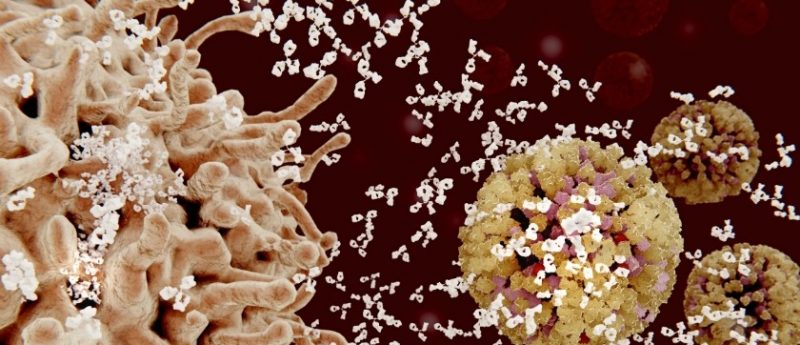News round-up: Green light from NICE for NSCLC immunotherapy; Pan-Cancer Atlas data and 40 myeloma genes unearthed

NICE gives green light to novel immunotherapy for most common lung cancer
Patients with advanced NSCLC, whose disease has progressed following standard chemotherapy, can now access the immunotherapy Tecentriq® (atezolizumab) via the NHS in England and Wales. The novel immunotherapy has significantly extended the lives of patients with advanced NSCLC versus chemotherapy, with fewer side effects.
After a previous negative decision, the latest positive NICE decision was based on a Phase III study that highlighted that individuals with NSCLC treated with atezolizumab lived a median of 13.8 months (4.2 months longer than those receiving standard chemotherapy). Atezolizumab is a PD-L1 inhibitor; however, it has also been shown to be an effective option for patients regardless of PD-L1 expression.
Read more about atezolizumab:
- Tecentriq combo delivers survival benefit to NSCLC patients
- Lung cancer combination doubles 12-month PFS
- Immunotherapy 2.0 – ASCO names clinical cancer Advance of the Year
Source: www.pharmiweb.com/pressreleases/pressrel.asp?ROW_ID=273197
Pfizer’s Inlyta® Phase III trial halted
Pfizer’s plans to reverse the decline in sales of its VEGF inhibitor Inlyta ® (axitinib) have taken a knock after its Phase III ATLAS trial (evaluating the drug as an adjuvant therapy for patients at high risk of recurrent renal cell carcinoma after nephrectomy) was called to a halt due to futility.
The recommendation comes after interim data suggested there was no improvement on disease-free survival compared to placebo.
Related content:
“We are disappointed by the outcome of this study as we had hoped the efficacy that INLYTA has demonstrated as a second-line treatment in patients with advanced renal cell carcinoma would carry over to patients with earlier stage disease, where it would delay or prevent disease relapse. That goal was not achieved. We will conduct additional analyses on the data that may provide insight into this result. Studies evaluating INLYTA in combination with immune checkpoint inhibitors for patients with a variety of advanced stage cancers, including renal cell carcinoma, will continue,” explained Mace Rothenberg, Chief Development Officer, Oncology, Pfizer Global Product Development.
Source: www.businesswire.com/news/home/20180410006316/en/Pfizer-Update-Phase-3-Trial-Axitinib-Adjuvant
Researchers discover 40 genes involved in early development of myeloma
A team of researchers, based at The Institute of Cancer Research (London, UK), have discovered 40 genes involved in the development of myeloma, increasing our understanding of the complex genetics behind this incurable blood cancer and paving the way towards individualized treatment.
In this study, the team analyzed the WES data from 804 individuals with myeloma alongside the WGS data of 765 myeloma patients. They discovered that 16 genes were disrupted in coding regions of DNA and 15 in non-coding areas. Of note, tumor suppressors PAX5 and HOXB3 were found to be downregulated by non-coding mutations, consistent with their decreased expression contributing to the development and progression of myeloma, which is also observed in other B cell cancers.
Related content:
- Multiple myeloma progression: largest genome sequencing project of precursor offers insight
- What are the treatment options for myeloma? John Ellwood’s story
- The patient and clinician’s perspective on the recent recommendation of ixazomib
The researchers have now added TWEAK, TRAF2 and PRKD2 to the list of genes in myeloma that are disrupted by coding mutations, COBLL1 as dysregulated by mutations in non-coding DNA, and MAP3K14 as upregulated by DNA reorganization.
Source: www.icr.ac.uk/news-archive/researchers-discover-40-genes-involved-in-early-development-of-myeloma
Pan-Cancer Atlas discovers the common roots of 33 cancer types
Cancers should no longer be categorized by where they are first formed in the body but instead by similarities in tumor types, researchers have stated. The findings arise from the Pan-Cancer Atlas, a detailed analysis from a dataset containing molecular and clinical information on over 10,000 tumors from 33 forms of cancer. The study is the most comprehensive cross-cancer analysis to date.
“This project is the culmination of more than a decade of ground breaking work,” explained NIH director Francis S. Collins (MD, USA). “This analysis provides cancer researchers with unprecedented understanding of how, where and why tumors arise in humans, enabling better informed clinical trials and future treatments.”
Source: www.sciencedaily.com/releases/2018/04/180405183629.htm




